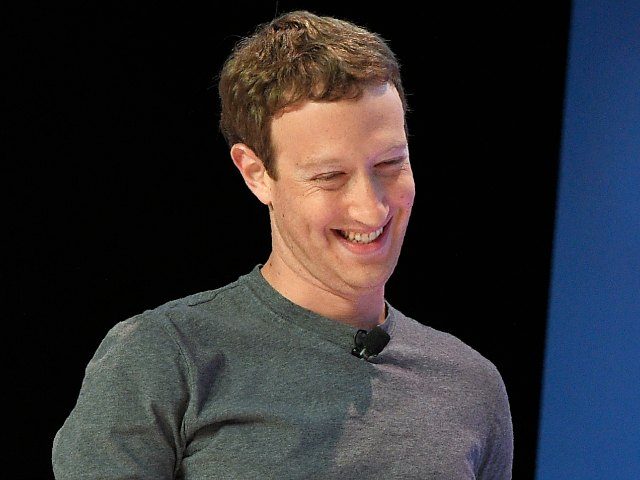Facebook has rolled out yet another change to its newsfeed, which they say will give greater visibility to posts from “friends and family.” The subtext is that it will decrease visibility to pages run by publishers and news sites, escalating the social media giant’s running battle with the publishing industry.
The influence of Facebook over the success or failure of publishers and news sites has expanded astronomically over the past few years. Consider this: at the inauguration of President Trump, Fox News’ coverage attracted the most viewers on cable news – an average of 8.8 million. But their Facebook video of the same event attracted almost twice that number: 16 million. In 2017, the most-shared news video on the platform was viewed no fewer than 67 million times. Facebook now has the power to make or break publishers.
If the latest newsfeed change is anything to go by, they’re now keen on breaking them. The change is going to slow the spread of content from all media outlets across Facebook, in a move that The Hill has speculated may be due to the pressure the platform is under to stop the flow of “fake news.” Given that attempts to target individual publishers can lead to charges of political bias, something which in the past almost led to a Senate-led investigation of Facebook, the platform might be trying to get around the problem by diminishing the reach of all publishers equally.
This means that Breitbart News’ 3.7 million Facebook fans will have to manually navigate to our Facebook page in order to find our articles, instead of having them automatically appear in their news feeds. They will not have a choice in the matter: Facebook will not allow users to stick with the old system, even if they prefer it.
With Facebook’s change threatening to rob news sites and publishers (including Breitbart News) of potentially millions of views, the change only further underscores Facebook’s extraordinary influence over the media landscape. No other organization in history, save perhaps the politburo of the Soviet Union during the era of the Warsaw Pact, has had this much influence over so many news outlets at the same time.
Any influence over news is also influence over politics, which is why Facebook’s initial ban, and then reinstatement of a pro-life movie caused such a stir. Facebook, with over 2 billion active users, has become essential to the promotion of political causes and content. Like it or not, that gives them the power to both promote or crush grassroots movements, should they choose.
Much of today’s news coverage and political pressure concerns the alleged effects of Facebook on American elections, particularly with regards to the ongoing Russia panic. But Facebook has just as much power beyond America’s borders: the Philippines has nearly 41 million active Facebook users between the ages of 18 and 65. Those are election-swinging numbers, and in a country where the President’s political views, like Trump’s, are pretty far from Mark Zuckerberg’s.
Facebook initially tested some of its changes to its newsfeed in late 2017, in a six countries. One of these was Cambodia, a country where opposition politicians are essentially barred from broadcast media, and rely on the internet to develop a serious presence. Facebook’s changes to newsfeed almost killed independent content creators in Cambodia, and indisputably strengthened the authoritarian ruling party.
That’s why the comparison to the Soviet Union is relevant. The propaganda ministries of the USSR didn’t just influence the news in Soviet Russia, but in Poland, Hungary, the GDR and even Cuba. Facebook’s influence over the news is, if anything, even more extensive. And whether they like it or not, they can now choose to strengthen the political establishments of foreign countries – to the point of nearly snuffing out opposition media in Cambodia’s case – or weaken them.
It’s not just about authoritarian regimes in Asia though. If Facebook retreats from news, removing the potential for new publishers, news sites, and content creators to grow, it is closing the door on a system that allowed new voices to thrive. It is, in effect, handing power back to the political establishment and old-school media gatekeepers. Having experienced a brief loss of power, and a populist rising tide, expect those gatekeepers to be more controlling than ever before.
Facebook has taken a financial hit from its decision. The company’s stock fell by 4.5 percent upon the announcement of its newsfeed changes, personally shaving $3.3 billion off Mark Zuckerberg’s personal net worth. That suggests that Facebook is happy to suffer financial pain in order to step back from their de facto role as the megaphone of new publishers.
So far, politicians in both the E.U. and the United States have been pressuring Facebook to increase, rather than decrease its censorship. Germany wants Facebook to follow its draconian hate speech laws, while politicians in the U.S. want the platform to tackle so-called “Russian meddling.” Hopefully Facebook’s conception of a “Russian bot” is more nuanced than Twitter, where engineers believe that any account tweeting about “God, guns and America” must be a Russian agent.
But Facebook’s real power lies in what it suppresses, not what it allows. With its latest newsfeed change. publishers are about to get a reminder of just how much power the social network currently wields over them.
You can follow Allum Bokhari on Twitter, Gab.ai and add him on Facebook. Contact him securely at allumbokhari@protonmail.com

COMMENTS
Please let us know if you're having issues with commenting.